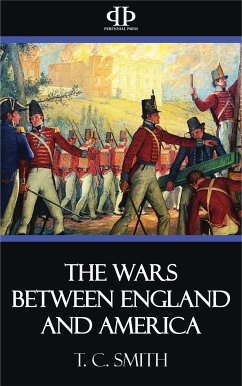The Wars Between England and America by T.C. Smith offers an insightful exploration into the complex and often tumultuous relationship between Great Britain and the United States during the late 18th and early 19th centuries. This comprehensive work delves into the political, economic, and social factors that led to conflicts such as the American Revolutionary War and the War of 1812, providing readers with a nuanced understanding of the causes and consequences of these pivotal events.
Smith meticulously examines the ideological divergences, economic tensions, and diplomatic challenges that fueled hostilities between the two nations. Through detailed analysis, the book sheds light on the motivations and actions of key figures, the impact of international affairs, and the evolving national identities that influenced the course of these wars. By contextualizing the conflicts within the broader scope of global politics, Smith offers a balanced perspective that highlights the complexities of Anglo-American relations.
Written with clarity and scholarly rigor, The Wars Between England and America serves as both an engaging narrative and a valuable academic resource. T.C. Smith's work remains a significant contribution to historical literature, providing readers with a deeper appreciation of the intricate dynamics that shaped the early interactions between England and America.
Smith meticulously examines the ideological divergences, economic tensions, and diplomatic challenges that fueled hostilities between the two nations. Through detailed analysis, the book sheds light on the motivations and actions of key figures, the impact of international affairs, and the evolving national identities that influenced the course of these wars. By contextualizing the conflicts within the broader scope of global politics, Smith offers a balanced perspective that highlights the complexities of Anglo-American relations.
Written with clarity and scholarly rigor, The Wars Between England and America serves as both an engaging narrative and a valuable academic resource. T.C. Smith's work remains a significant contribution to historical literature, providing readers with a deeper appreciation of the intricate dynamics that shaped the early interactions between England and America.


